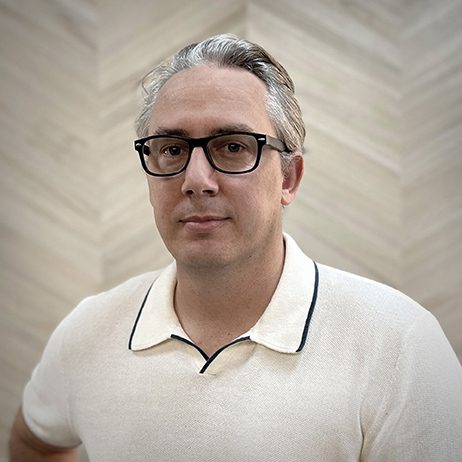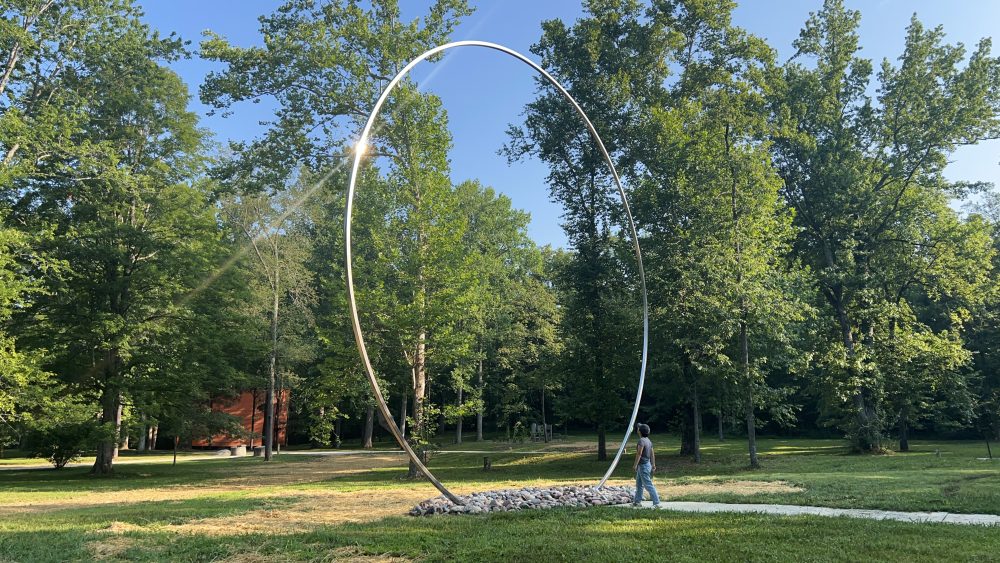David W. Mayo, AIA

Owner, Studio MAYO Architects in Louisville, KY
Education: BA in Architecture, UNC Charlotte (2006)
BS in Architecture, UNC Charlotte (2007)
Hometown: Hendersonville, NC
David Mayo is a licensed architect with more than 17 years of experience. Prior to forming Studio MAYO Architects in Louisville in 2016, David worked as an Associate Principal at the award-winning firm of de Leon & Primmer Architecture Workshop. During that time he received numerous American Institute of Architects (AIA) design awards. Most notably, he was project manager on the Mason Lane Farm Operations Facility and the Owsley Brown II History Center, which both received an American Institute of Architects National Design Award for Architecture.
Studio MAYO has received multiple State Design Awards from the AIA Kentucky Chapter, including a Merit Award for the Second Chances Wildlife Education Center in 2018 and a Citation Award for the Cana Island Interpretive Center in 2022. Recently, Studio MAYO was selected as the official design for Pre-approved Accessory Dwelling Units in Metro Louisville.
“Housing is an issue everywhere,” David says, “and we are honored to provide free drawings to help increase design, equity, and resiliency in our local housing market.”
He was also one of six artists chosen through an international competition to create work for L+A+N+D – Landscape + Art + Nature + Design, an art and nature initiative at Bernheim Forest and Arboretum in Clermont, Kentucky. His installation, H2Oh!, is a visible, tangible demonstration of the actual amount of water on Earth (pictured below).

“Being architects, we are interested in scale and wanted to create an experience that produces a visceral reaction to the relationship between the size of the planet, the volume of water it holds and the atmosphere that protects it at a relatable human scale.”
David says his education at UNC Charlotte opened his eyes to a world of design theory.
“Every word and design move held meaning. My classmates and I tackled existential questions, such as the source of meaning and inspiration for what constitutes a good project. I was taught to be thoughtful and rigorous, with an emphasis on craft, empathy, and design excellence. This rigorous and thoughtful approach has significantly shaped my career and life.”
He has many fond memories of roaming the Storrs Building at night with friends, getting into all sorts of shenanigans while also challenging each other to grow. “I was fortunate to be among a talented pool of students, where iron sharpens iron. One particularly memorable moment was being called to the Dean’s office for a disciplinary investigation. The Dean said, ‘Why is it always you three?’—it felt like a scene from a Harry Potter movie. Being distraught about the idea of being expelled or the threat to my reputation, my professor reassured me with, ‘Any press is good press.’ They eventually found the culprit, and I never forgot that lesson. Another meaningful experience was working on animations of structural concepts with David Thaddeus while at UNC Charlotte. Years later, as I reviewed the study guide the night before my ARE licensing exam, I was directed to the ‘best resource for preparing for the structures exam,’ and it was all the same animations I had created years earlier. It was a full-circle moment that motivated me to pass the test with confidence.”
David has been on the jury for the AIA design awards competitions for Iowa, Northern Alabama, and Eastern Ohio and was the chair of the jury for Eastern Tennessee in 2022. Additionally, he was invited to speak at the 2013 Kentucky AIA convention, Louisville, PechaKucha vol. 14, the Louisville commission on Public art, and the 2018 AIA Kentucky Design Awards Project showcase.
His work has been featured in national exhibits and publications, including ARCHITECT Magazine, Architectural Record Magazine, Dwell Magazine, Design Bureau Magazine, and the 2020 National American Institute of Architects Emerging Professionals Exhibit.
His message for current students is that “the pedigree of the degree matters less than your own investment—you get out of it what you put into it.” At UNC Charlotte, he says, “the culture, the facilities, and the professors are all top-notch. UNC Charlotte had everything I needed and more.”